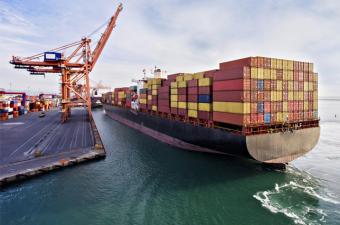
OVERVIEW
The Court of Appeal has today given judgment in The Eternal Bliss on the availability of general damages in addition to demurrage arising from delay. Allowing the appeal, the Court held that demurrage liquidates the whole of the damages arising from a charterer’s breach of charter in failing to complete cargo operations within the laytime.
The appeal raised a point on which there was no previous binding authority and which has, for almost 100 years, divided eminent judges and commentators. The leading textbooks were split on the issue.
Scrutton took the position that where the charterer’s breach causes the shipowner damage in addition to the detention of the vessel, losses can be recovered in addition to demurrage. But the authors of Voyage Charters said the better view was that the shipowner could only recover such losses if it could show a separate breach of contract (one other than the failure to load or discharge the cargo within the time allowed).
The dispute in this case arose from a voyage charter for the carriage of soybeans from Brazil to China. The charter was drawn up on an amended Norgrain form, which provided that demurrage, if incurred, was to be paid at a daily rate or pro rata.
After arriving at the discharge port, the vessel was kept at the anchorage for 31 days due to port congestion and lack of storage space ashore. Post discharge, it was said that the cargo exhibited significant moulding and caking throughout the stow in most of the cargo holds. The owners commenced arbitration against the charterers seeking to recover the cost of settling the cargo claim. The sole breach of contract relied on was the charterers’ failure to discharge within the laytime. The charterers contended that demurrage was the owners’ exclusive remedy for that breach.
The parties invited the Court to determine this point of law on assumed facts under s.45 of the Arbitration Act 1996. At first instance, Andrew Baker J found for the shipowner. He held that the cargo claim liabilities were a different type of loss to the detention of the vessel and that the shipowner could recover damages without proving a separate breach of contract. The 1991 decision in The Bonde (in which Potter J had reached the opposite conclusion) was, he said, wrongly decided.
Like the first instance judge, the Court of Appeal approached the point as one of principle, noting that distinguished judges have struggled, without success, to discern a ratio on this issue in Reidar v Arcos (the 1926 decision to which the long debate is often traced back). In delivering the Court’s judgment, Males LJ held that the case turned on the proper meaning of the term “demurrage” as it is used in the charterparty. The Court of Appeal concluded that, “in the absence of any contrary indication in a particular charterparty, demurrage liquidates the whole of the damages arising from a charterer’s breach of charter in failing to complete cargo operations within the laytime” (para 52).
This is a significant judgment on a major point of shipping law. In reversing the first instance decision, the Court of Appeal has given a much broader scope of the meaning of “demurrage” and treated it in much the same way as a standard liquidated damages clause, rather than limiting it to a particular type of loss. But this may not be the last word on the issue, which given the lively debate would benefit from clarification from the Supreme Court.
Simon Rainey QC and Tom Bird acted for the shipowner, instructed by Nick Austin and Mike Adamson of Reed Smith LLP.


